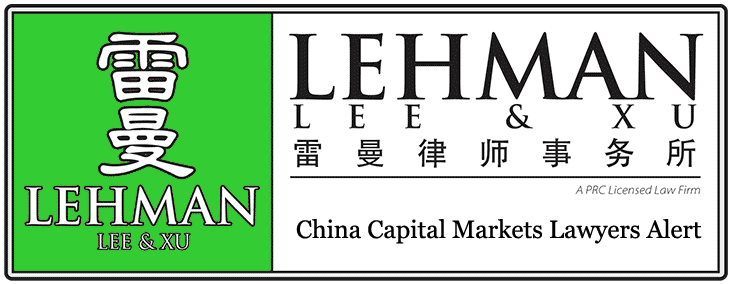
 |
|
LEHMAN, LEE & XU China Lawyers
|
|
China Capital Markets law In The News
|
|
May 2013
|
The China Law News keeps you on top of business, economic and political events in the China. |
|
|
|
In the News |
Calls for ending capital punishment in China |
BEIJING (Caixin Online) — Several miscarriages of justice have made the news in China in recent decades. These included cases of wrongful imprisonment and even execution. In 1995, Nie Shubin, 20, was executed for raping and murdering a woman. Ten years later, another man confessed to the crime. Three years later, She Xianglin, 47, was sentenced to 15 years in jail for murdering his wife. After spending 11 years in prison, he was declared innocent and released because his wife was found living in a neighboring province. Zhao Zuohai, 58, was convicted in 2002 of murdering a man and given the death penalty. Ten years later, the “victim” turned up and Zhao was freed. Zhao is the director of the university’s College of Criminal Law Science and serves as “distinguished counselor” to the Supreme People’s Court. During a recent debate at the French Embassy in Beijing, Zhao argued that China should strictly limit use of the death penalty and gradually reduce the number of times capital punishment is used. He suggested abolishing the death penalty before 2049, for the 100th anniversary of the founding of the People’s Republic of China. Zhao said that when China embarked on a tough anti-crime campaign in 1982, the National People’s Congress Standing Committee approved use of the death penalty for 24 criminal offences and economic crimes. In addition, the procedure for reviewing death penalty cases was delegated to high courts in the provinces, autonomous regions and municipalities. In 2007, to prevent unjustified and wrongful executions and to control the total number of death penalty cases in the country, the power of review was returned to the Supreme People’s Court. Four years later, the country revised its Criminal Law to remove 13 crimes from the list of those punishable by death. Non-violent offenses such as financial and tax fraud; smuggling relics, precious metals and rare animals; and looting cultural ruins were stricken from the list. However, China still holds the world record for the most capital offenses — 55. Also, China considers the number of executions a state secret and has never publicized it. Some people argue that keeping capital punishment will help to curb corruption. However, He Jiahong, a professor at Renmin University, disagrees. He says that while current anti-corruption laws rely on severe punishment, effective investigation is a better approach. The professor points out that even though punishment for corruption in China is very harsh, graft is still very common. The best way to curb corruption is democracy and the rule of law, he says. Professor Qin Hui of Tsinghua University says when the system shows progress, it will guide and change public opinion. He said judicial reform involving abolition of the death penalty will transform public opinion.
|
Major firms grab larger slice of property market |
China's major property developers are grabbing bigger market shares, and higher revenues from the market reshuffle brought about by tightening policies, according to the latest real estate industry statistics.
|
Renminbi bond markets: Coming of age |
The offshore renminbi bond market in its current form is nearly three years old. This has not been a period of unalloyed financial stability in the world and this fledgling market has had to endure something of a baptism of fire. However, it has negotiated the various obstacles in its path to become an interesting investment opportunity which has caught the attention of an increasing number of global investors. Here we discuss some of the current themes in the market and discuss how renminbi bond markets may develop in the coming months and years.
|
|
|
|
|